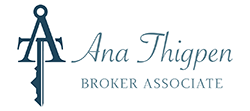
Buying a house is the largest transaction the average person is ever involved in. Financing that purchase, is also one of the largest financial commitments ever made. Choosing a lender to help you through this process is not only prudent but well-advised.
It is very common that home buyers, or current homeowners, think that the typical 30-year mortgage that most people get nowadays can’t possibly be that complicated. The reality is, there are several considerations that have to be taken into consideration when you get that mortgage. Considerations that can have an impact in the tens of thousands of dollars in the long run. It only makes sense that you would have a competent, qualified mortgage lender on your side to give you the best advice on how to proceed.
How do you go about finding such a qualified mortgage professional? I want to give you some practical insight from decades of experience in dealing with mortgages. From financing and refinancing my own properties, to dealing with hundreds of buyers and seeing them go through the process of getting a mortgage on their home purchases. Let’s dive in and explore how to find the right lender for YOU.
Understanding the different types of lenders
One of the first things to be aware of, is the different types of mortgage lenders you may come across.
Banks
That bank where you have your checking and savings accounts, no doubt offers mortgages. In fact, they probably don’t miss an opportunity to promote their mortgage services to you every chance they get. Here is some insight on mortgages from a bank. The first thing to know is that a bank employee who sells home loans, is an employee of the bank. They are OBLIGATED by contract and duty to look out for the best interest of the bank, not yours. After all, that bank writes their paycheck every month. Consider this as you decide if the advice you get from them is what is going to best serve you, or the bank.
Additionally, banks have a menu of loan programs. And though it may be sufficient for you, then it may not, take into consideration that they are limited to what they have in-house. If you get declined for some reason, you are done with them as far as a mortgage is concerned.
As always, you want to shop for rates as banks are not always the lowest in rates and fees. You may hear the phrase “ with us, you don’t pay broker fees”. That doesn’t mean much really. Mortgages are so profitable for lenders that they find a way to make their money. Remember, the mortgage business is a money business, and nobody gives it away, especially banks who are in business for one thing and one thing only: to make money off their customers and depositors.
Big-Box Direct Lenders
You see them on TV, radio, and in newspapers. Clever names, logos, and advertising to attract attention. If you ever click on an ad for any type of mortgage online, you are then followed by them.. And their competition everywhere you go online. That’s called retargeting.
Bix-box lenders are not banks, they offer one thing and one thing only- Home Loans. They typically have massive call centers where you would call and talk to someone who does one small part of the loan process. Initially, that is the sale. They then pass it on to operations for processing, closing, and funding. You may not have much interaction with them after the initial sale. Even at that point, the business model is to keep it as short as possible as they have to sell substantial numbers of loans to make their money. It is a loan assembly line. A purely transactional relationship that nearly always ends at the point of sale. This model is really best for those who have their financial affairs in order, maybe have a financial advisor advising them on money matters, or for someone who is savvy and understands mortgages well. They just need someone to push that paperwork.
Smaller Direct Lenders
These companies operate at a smaller scale. Most work a lot directly with Real Estate agents to jointly take a home buyer through the purchase process. You are likely to get by far more attention from one of these lenders that any of the two above. They are also likely to spend a respectable amount of time with you to make sure your home financing is suitable for you, and your long-term plans.
Worth knowing is that these lenders often have broker relationships that give them the ability to broker loans to other wholesale lenders to offer you a wider range of choices. Not everyone is out for a 30 year fixed loan. And even within that one loan, there are variations and nuances such as, buying down the rate by paying points, choosing the right lock term, and when to lock your loan. All these factors can turn out to be costly if not executed properly.
Recently, in March 2022 -many borrowers who were in a contract to buy a house and did not lock their loans ended up having to cancel their purchase contracts when rates spiked up over half a percent in a short period of time. On a $600,000 loan, a ½ percent rate increase is close to $250 a month. Not exactly pocket change. We can speculate how many of those took charge of their own decision-making when it came to locking the loan, instead of relying on a trusted mortgage advisor with the right tools to forecast what rates might be doing. There are great tools like MBS highway, available only to lenders, that can alert them of impending rate increases. This gives the lender the opportunity to at least advise their borrowers on what’s coming and help them make an informed decision. Transactional lenders, those big-box loan assembly lines, can’t afford this type of involvement with each loan.
Mortgage Brokers
Some may shudder at the thought of using a mortgage broker. They often get a bad reputation, in some cases, deserving. But not all brokers are bad, like anything else in life, it’s a mixed bag and good and “not so good”. Using a broker has some distinct advantages though, such as:
- A larger product mix. Brokers are often approved with a dozen or so wholesale lenders which gives the borrower more options. Even within the vanilla 30-year fixed mortgage, some wholesale lenders may offer special pricing one day just to gain market share. A broker can price your loan with all of them at the same time to give you the best deal around. It only takes them less than five minutes to do what could take you days. One thing that often happens when a borrower is shopping rates is that they will call one lender one day, and a few more over the next few days. That is a disservice to the borrower and the lenders they talk to. Rates change daily, oftentimes multiple times a day, albeit in small amounts. One rate quote in the morning for a rate that has no points could cost ½ a point by the afternoon, and a point by the next day. If you talk to different lenders at different times or days, it is a waste of time as you are not getting a true comparison. But most people don’t know that.. They just chug along thinking they are doing the right thing.
- Mortgage brokers are on your side more than any lender. You see, they don’t have an employer/employee relationship with the wholesale lenders. There is no contractual obligation to maximize the profits of any one company. In today’s competitive market, they know they will get the deal if they give YOU the best deal. They hustle a lot more to offer you a better rate and terms because you have to buy from them if they are to make any money.
- If your loan gets turned down for some reason, they can place you with a different wholesaler. As opposed to banks and big-box lenders where you only have their funding source available, and if they turn you down, you have to start all over again with a different bank or lender. Mortgage brokers can submit your loan to more than one lender if necessary to get your loan approved.
About broker fees. Banks and big-box lenders love to vilify brokers by accusing them of charging the dreaded “broker fee”. Let me put that myth to rest. ALL lenders charge for their services, banks, direct lenders, and brokers. I can assure you that it is practically guaranteed that you will never see a “mortgage broker fee” on a loan estimate or closing statement. Not with the vast majority of home loans. Back in the days of yesteryear… decades and decades ago, that might have been the case. And just as the old myth of “never refinance unless your rate drops by two percent” is not useless, so is that warning of “broker fees”.
What you need to do is, compare loan estimates side by side and look at every fee and make your own decision. The Consumer Finance Protection Board (CFPB) mandated lenders to have a standardized document disclosing loan fees in a way that a borrower can make a fair comparison. That document is called a Loan Estimate (LE for short). Any lender you apply with is obligated to provide one for you. Use that to your advantage.
Which type of lender is the best choice for you?
You are now armed with more insight than most borrowers. Based on the above information which is reliable and relevant here in California, you now get to weigh the pros and cons and decide. You would be well served to talk to one of each type of lender perhaps and due your own due diligence. If you have friends or family who have had a pleasant experience recently with a lender, that may be a good starting point. Then find your own source to compare and may the best lender win!
